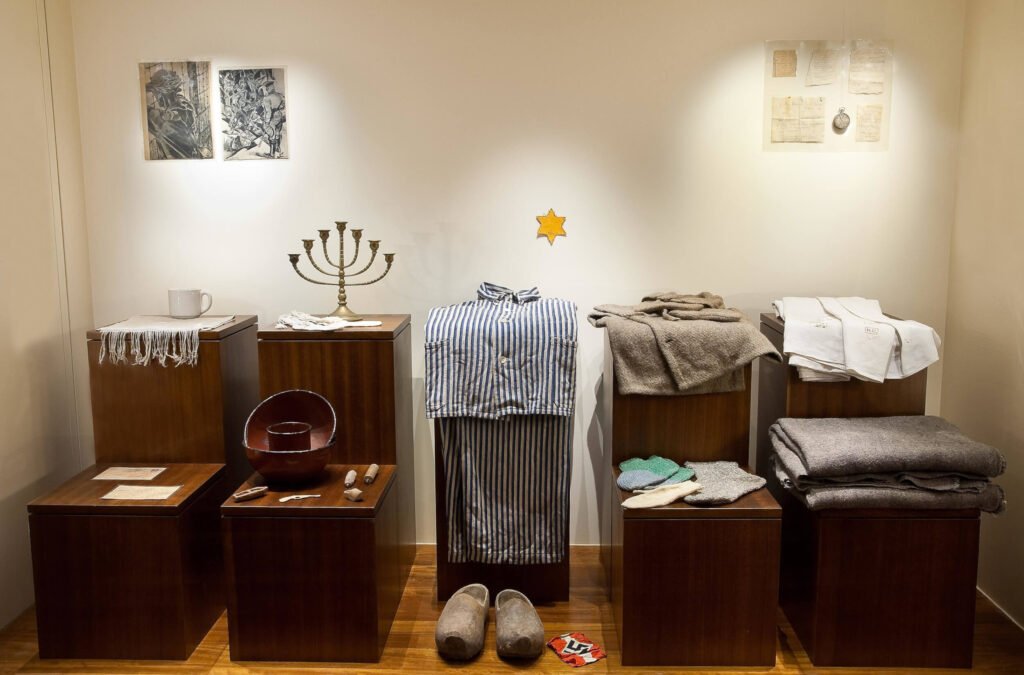The Greek Presidency is proud to announce that the pioneering project “Untold Stories of the Holocaust”, an initiative taken by the Jewish Museum of Greece in partnership with the National Holocaust Centre and Museum (Nottinghamshire, UK) and the Holocaust Memorial DayTrust (UK), has been selected as one out of the seven initiatives which make part of 2021 IHRA Grant Projects. In the spirit of the Greek Presidency’s priority concerning Education, the project aims to use new technologies to shed light on lesser-known aspects of the Holocaust.
“Untold Stories of the Holocaust” aspires to offer an online, innovative and interactive learning experience which, using artefacts as a primary resource, tells the stories of individuals who witnessed the Holocaust.
Mrs. Zanet Battinou, JMG Director, explains the vision of this original initiative as well as the means by which it will be implemented: “We will create an interactive map of Europe that enables audiences to explore the provenance and journey of specific Holocaust artefacts. In line with the IHRA Grant Strategy, this project will focus on casting a light on lesser-known aspects of the Holocaust and sharing previously unknown testimonies. There is far less knowledge about the impact of the Holocaust in countries across Europe and particularly with regard to Greece, despite the fact that the Nazis and their collaborators murdered about 85% of Jews in Greece. This website through mapping the journeys of different survivors and their artefacts in an immersive and innovative way will provide a user-friendly tool for civil leaders, museum educators and teachers. Through placing the artefact back in its original context, we aim to support audiences to develop a greater understanding of the Holocaust and its complexity. — For example, the spoon which Berry Nachmias, an Auschwitz survivor from Kastoria, used to feed Paula Soulema, an Auschwitz survivor from Thessaloniki, saving her life in the process, and the socks knitted in the Bergen-Belsen Camp by Eda de Botton, for her young daughter Reina, who was hiding with an Italian family Thessaloniki.”
